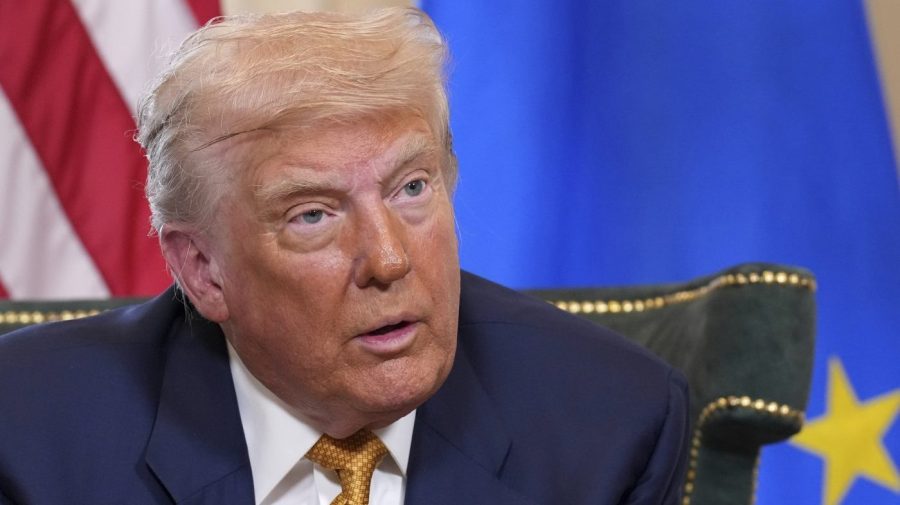Trump trade policies less damaging than expected: IMF

President Trump’s trade policies are less damaging than expected, with the International Monetary Fund (IMF) upgrading the projections of global economic growth for this year and 2026.
The IMF, a Washington-based financial institution that works on facilitating international trade and sustained economic growth, projected a 3 percent global economic growth for 2025, 0.2 percentage points higher than the previous forecast from April, according to its Tuesday report.
The organization, which consists of 190 member countries, is also projecting a 3.1 percent growth in 2026, 0.1 percentage point higher than the previous forecast.
“This reflects stronger-than-expected front-loading in anticipation of higher tariffs; lower average effective US tariff rates than announced in April; an improvement in financial conditions, including due to a weaker US dollar; and fiscal expansion in some major jurisdictions,” the IMF said in the new 12-page report.
Similarly to the April findings, global headline inflation is expected to dip 4.2 percent this year and 3.6 percent next year.
“The overall picture hides notable cross-country differences, with forecasts predicting inflation will remain above target in the United States and be more subdued in other large economies,” the group said.
Companies “frontloading” imports before Trump’s tariffs when into effect, along with the slight tumble of the U.S. dollar assisted in the growth of the world economy, IMF’s chief economist Pierre-Olivier Gourinchas told The Financial Times.
“At the time of the April forecast, we had an effective tariff rate on [imports into the US] of 24 per cent,” Gourinchas said. “We’re now looking at an effective tariff rate of 17 per cent. While 17 is still much higher than where we were in January, there’s been some easing of the tariff pressure.”
China and the U.S. economies have received upgrades in the IMF’s forecast, along with the United Kingdom, which will be the third-fastest-growing economy within the group of seven (G7) this year and in 2026.
“In both tariffing and tariffed countries, elevated uncertainty and volatility require robust prudential policies to safeguard financial stability,” the IMF wrote in the report.
“Crucially, the ambiguous and volatile landscape also requires clear and consistent messaging from central banks and the protection of central bank independence, not only in legal terms, but also in practice,” the organization added.